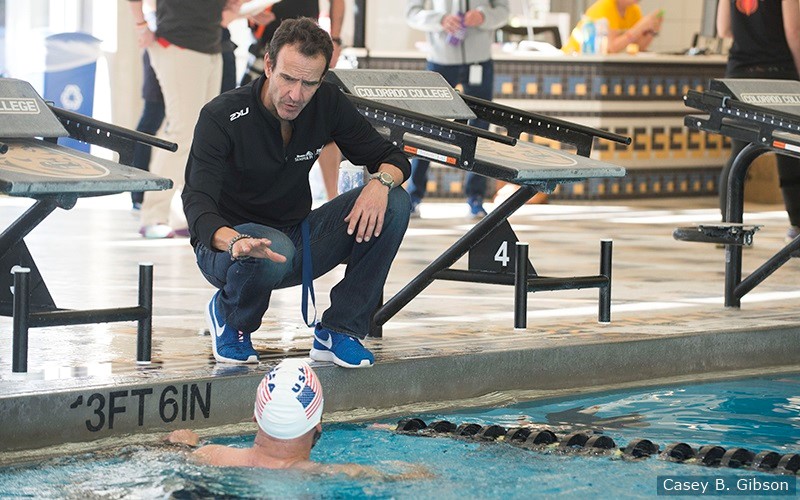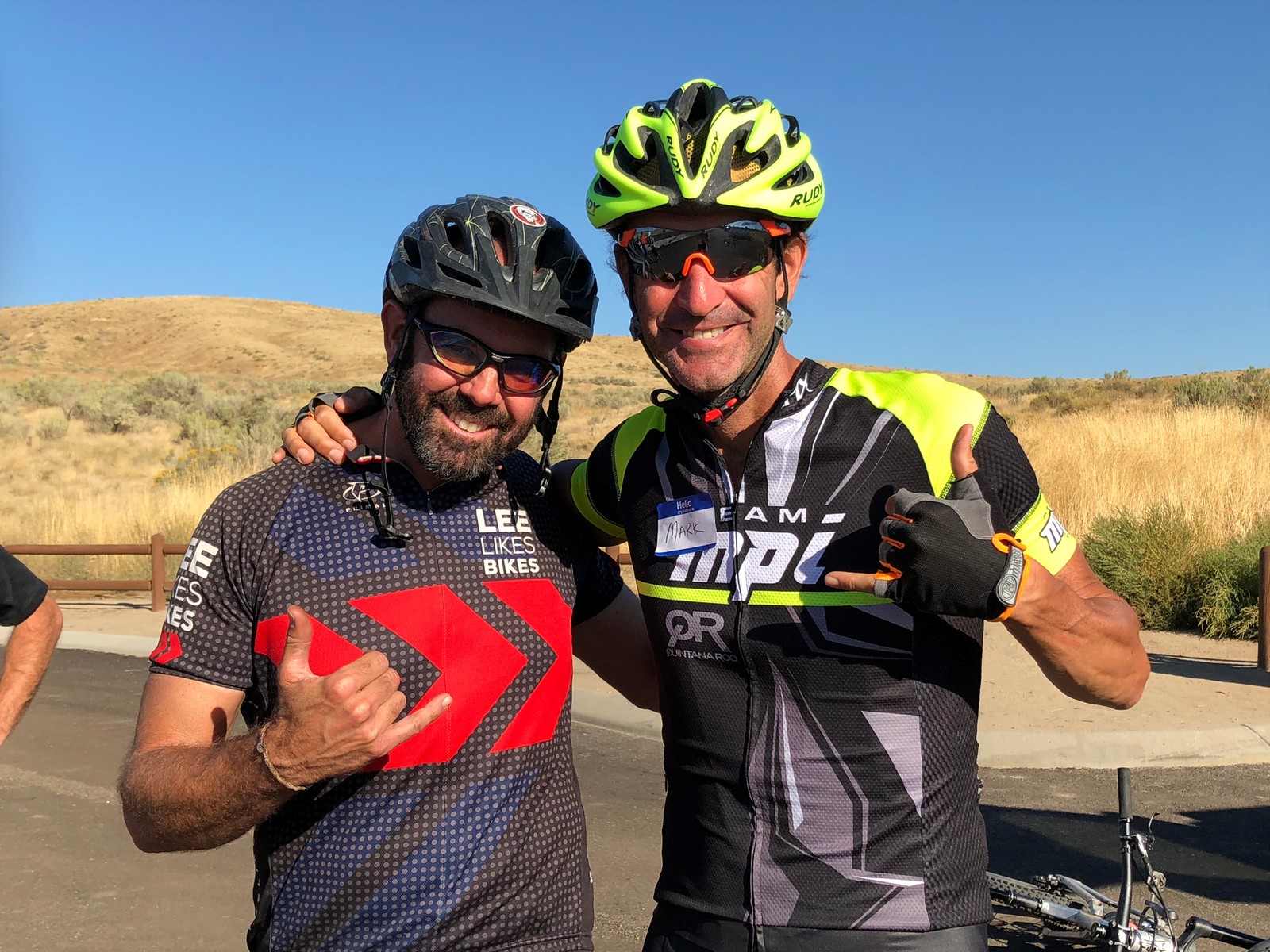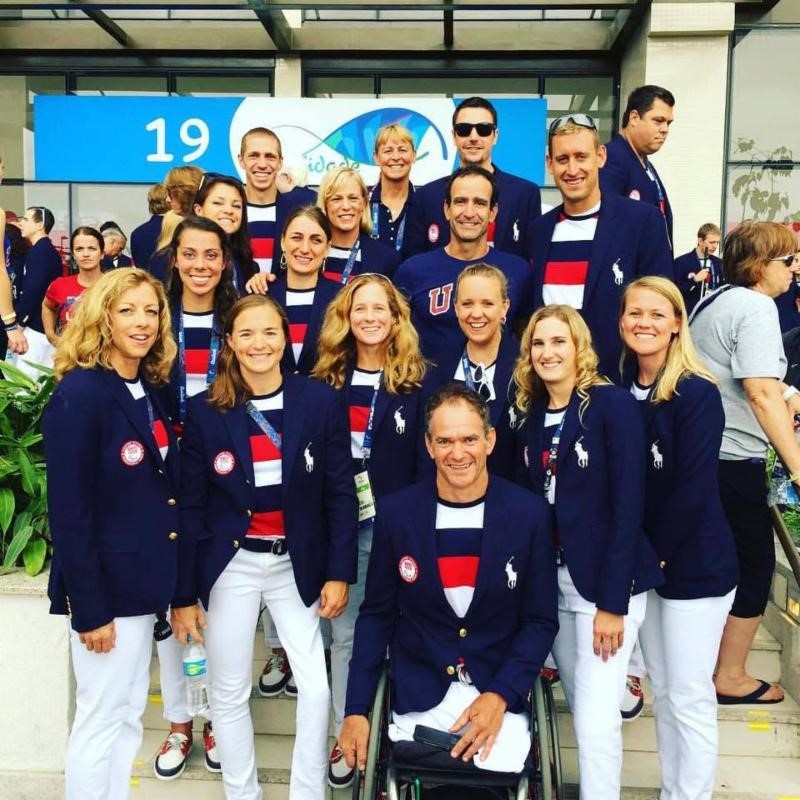
Mark Sortino, CEO of Team MPI
Mark Sortino is CEO of Team MPI, a group of certified professional coaches for endurance athletes. Mark is a USA Triathlon Level III Coach and Paratriathlon Coach and was Head Coach for Team USA at the 2016 Rio Paralympics. He was USAT Paratriathlon Coach of the Year 2017 and has featured on the cover of USA Triathlon Magazine. Mark is also a 16-Ironman and 3-time Kona finisher.
So what’s the scope of Team MPI?
Team MPI coaches all types of endurance sports athletes. This includes anything from obstacle course racing and Nordic skiing, to all levels of triathlons and open water swimming. We also help those embarking on big challenges such as climbing Mount Kilimanjaro or running seven marathons across seven continents.
We began as two coaches and now we have a team of 16, spread across the US. We work in a very collaborative way – that’s the core of our foundation, and we enjoy the mentorship that we have with each other. We tend to coach primarily remotely, setting training programmes, plus we’re also contracted to run training camps by various client organisations.
How do you use ithlete Pro at Team MPI?
On average a full-time coach works with 10 to 15 athletes at any one time. It might not be right for every single athlete on our books, but as part of our welcome package we encourage every new athlete that joins us to give ithlete Pro a try. We encourage all our coaches to bring their athletes on board with it, because it helps us to do our job better as a coach.
And as you’re coaching athletes remotely, how do you find the data that ithlete Pro provides?
Really no-one can be with an athlete the whole time, unless you’re coaching a student at high school or an elite professional squad. As coaches, we rely a great deal on honest communication from the athlete as to how they are doing. And we get feedback on individual training sessions, how they feel, what went on, their rate of perceived exertion, their times, and then of course we have their actual data, and the data history. But what we don’t know is: How did they sleep? How did they eat? What’s their personal life stresses? To get that information separately from the training, is really powerful.
So how do you use ithlete across multiple athletes?
One of the nice things about the coaching dashboard of the Pro account, is that I wake up in the morning, look at the dashboard, and for my East Coast athletes in a different time zone, they’re already up and they’ve taken their measurement. And if one of them is red, I can have a conversation which might give me some context. For example: ‘Well actually, yes, I didn’t eat well yesterday, and my kid was up sick all night, and I didn’t sleep well’.
Now if a hard session is planned, I can stop and think: maybe we shouldn’t do that session today. In that case the system has given us a heads up to the potential of an athlete getting sick if they do not follow the guidance. And that’s where ithlete has really been fantastic for me as a coach.

So can ithlete Pro enhance the athlete–coach relationship?
Absolutely. The hardest part of our job as coaches is to help, encourage, promote and understand the athlete’s ‘self’. Their body and how they’re feeling. In today’s world, everybody is so busy. Our athletes are juggling their families, their job, their social lives – and being an endurance athlete can be a time-consuming hobby.
As a coach, in certain circumstances I want to induce fatigue through training. In which case when fatigue shows up on the system the next day, that’s expected. Other times, when the system reports fatigue that’s unexpected, it almost gives the athlete permission to open up and start that conversation. ithlete Pro takes a snapshot of an athlete’s wellbeing and it’s something that you can’t hide. Seeing the hard data can justify how an athlete may be feeling sub-consciously – it makes it real, and that can prompt an athlete to talk about how they are feeling.
So can this greater understanding of what’s going on inside an athlete’s body lead to performance gains?
Yes, there’s the opportunity for both physical and mental gains. One athlete I work for has been using ithlete for two years. I didn’t realise beforehand how stressed she would get the week before a big race. The training programme went really well, we tapered nicely, there were no family or personal stresses. And then three days before the event, we got all these reds – because her body and mind were so stressed about the upcoming race.
That prompted a discussion about getting some sports psychology time to understand what’s causing this anxiety. The athlete is spending money on equipment, on the races, on a coach, and if they’re heading into an event and having a hard time for none of those reasons, then it may be worth having a session with a sports psychologist. So that’s an example of a mental gain.
And as for the physical gains, we see improvements in performance all the time. ithlete Pro is something I’ve come to rely on as a coach. It helps us to figure out that secret source within an athlete – a holistic view from training through to recovery, nutrition and sleep, and general wellness. It’s an insight into their life. As we move into a world of wearables, data about an athlete’s performance is more readily available than ever before, but it has to be part of a system that makes sense. What I really like about ithlete is that it gives us a view of the whole athlete over a period of time. And that’s the value. Based on the data we observe, we can adapt our training programmes accordingly – and as a coach, that’s just fantastic.
Can you say that it has reduced the prevalence of injury as well?
Of course it’s tough to say what would have happened hypothetically if you’d gone down a different road. We alter a training programme based on the available data. This data tells you when you need recovery. I’ve had more than one occasion where an athlete is red, and I’ve given them the day off, even though they report that they feel fine. And then the next day, they’re like: ‘Wow, today I don’t feel well – I think I’m on the verge of getting sick. It was a good thing I took the day off prior.’ And that action gives the athlete the best possible chance of a quick recovery. So ithlete knows when an athlete is going to be sick even before the athlete does, which is actually quite remarkable.

Tell us about your track record in triathlons as an athlete.
I was your classic late starter. Mid 30s with a young family, a sedentary job and a gradually expanding waistline! So first I got into cycling and soon after discovered triathlon. I was fortunate to fall in with a fantastic group of athletes who were super-competitive, but really positive with it as well. I fell in love with triathlon and performed OK, amateur-wise. Later on, I had an opportunity to start up a business and coach. Now I still enter races, but I only compete recreationally.
